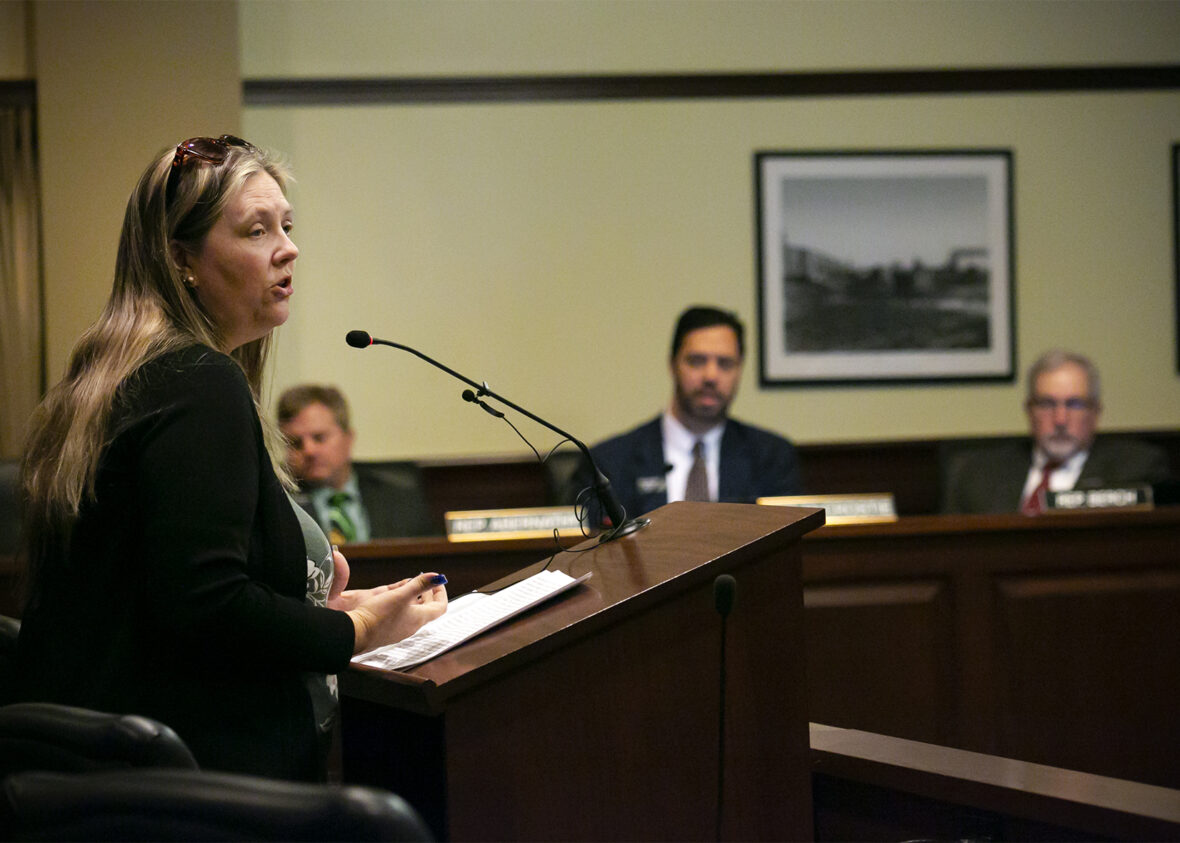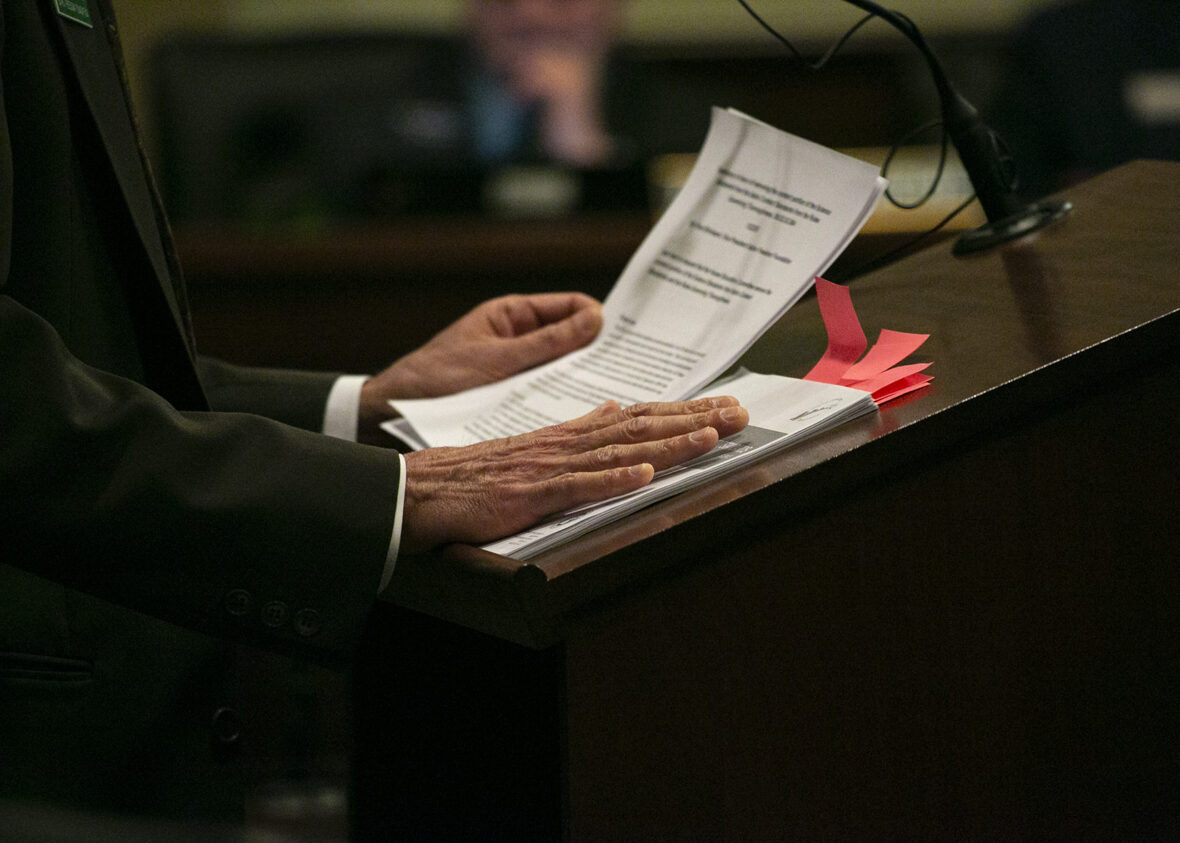A clear majority of Idaho educators favored retaining K-12 science standards during a wide-ranging, packed hearing at the Statehouse on Wednesday.
Testimony ran 15-10 in favor of retaining the standards during the nearly 2 ½ hour hearing. As was the case last week, the House Education Committee did not take any action following the meeting.
Wednesday’s hearing touched on predictable topics, such as the scientific method, experimentation, allowing students to use data to draw their own conclusions, climate change and human impact on the environment.
But, at other times, it veered wildly off course. Parents complained that their children had been taught that some of the founding fathers had owned slaves and that Christopher Columbus was a racist. Some parents even used the hearing to voice their displeasure with English and math standards, which were the subject of separate hearings last week.
On the other hand, several of the educators who testified said the science standards help guide their teaching and build a foundation for learning.
“They require our students to practice science in place of simply memorizing facts,” said Melyssa Ferro, the 2016 Idaho Teacher of the Year, who helped write the standards.

Eric Thies, a West Ada physics teacher, said implementing the science standards resulted in greater educational alignment among and between grade levels that saved him two days of having to “plug the holes” and design extra curriculum. He said he put that time back in the classroom in the form of additional enrichment.
“When we talk about removing them, or major portions of all of them wholesale, that throws our school system into chaos,” Thies said.
The opposition said the standards were not neutral enough and casted human impact on the environment in a negative light.
Rep. Dorothy Moon, a Stanley Republican and retired science and special education teacher, led off debate in opposition to the standards.
“Science is not political science,” Moon said. “But today you have to wonder.”
Moon complained that the standards and supporting content explain the negative impacts of fossil fuels and mining, but don’t do enough to promote positive things humans do for the environment.
“We need to talk about these industries that founded our country in a better light than they are being reflected,” Moon said. “It’s all negative and we have to have some positive.”
Idaho Freedom Foundation Vice President Fred Birnbaum agreed the standards went too far.
“The standards are not content neutral, but express what we would typically call political opinions,” Birnbaum said.
Roger Kenyon, a self-described “political refugee from California,” told legislators that textbooks “promote global warming” and teach “that George Washington was a bigot.”
Wednesday’s hearing was previously rescheduled twice, leaving several Idahoans frustrated, saying legislators made it difficult to share their voices on the issues. Even though there was an overflow crowd in the normal House Education Committee room, Chairman Lance Clow, R-Twin Falls, and Vice Chairman Ryan Kerby, R-New Plymouth, did not attempt to relocate the meeting to the much larger Lincoln Auditorium, which could have accommodated everyone who traveled to the Statehouse to follow the hearing or testify.

If a science standards hearing before the Idaho Legislature is starting to sound repetitive, there is good reason for that. Legislators have debated science standards in four of the previous five legislative sessions. In 2018, the Senate Education Committee approved science standards — despite opposition from the House Education Committee — following a divisive three-year debate.
Nampa instructional specialist Michelle Van Beek said the ongoing legislative hearings are leading to a high amount of uncertainty among educators.
“Why are we still digging into this debate and creating this trepidation for educators?” Van Beek asked.
Even though the science standards are only two years old, they are back in front of the Legislature again this year because legislators did not take the traditional housekeeping step of renewing administrative rules before adjourning the 2019 session.
When legislators get around to making a motion on academic standards, they will have three options. Legislators may repeal all or some of the standards, or they may keep all of them.
In order to actually remove the standards from the books, the House and Senate would need to agree. It would not be enough just for the House Education Committee to repeal standards.
